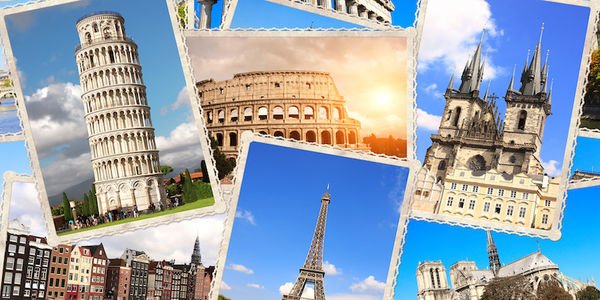Schengen Area
A significant portion of Europe is part of the Schengen Area, which allows for passport-free travel between member countries. This means you can often move between countries without border checks, making it easier to explore different places.
Diverse Cultures and Languages:
Europe is incredibly diverse in terms of cultures, languages, and traditions. While English is commonly spoken in many tourist areas, learning a few basic phrases in the local language can enhance your experience and interactions.
Efficient Public Transportation
Europe boasts an extensive and efficient public transportation network. Trains, buses, and metros are often reliable ways to travel within and between cities. The Eurail Pass can offer great value for travellers planning to visit multiple countries by train.
Historical Landmarks
Europe is rich in history and is home to numerous iconic landmarks. From the ancient ruins of Rome to the Gothic cathedrals of France and the castles of Germany, you’ll encounter a wealth of historical sites to explore.
Currency Variations
Europe has a variety of currencies, although the Euro (€) is used in many countries. It’s advisable to carry some local currency, especially if you’re travelling to countries that don’t use the Euro, to ensure you can make purchases and cover expenses.
Tap Water
In many European countries, tap water is safe to drink. This can save you money on buying bottled water and help reduce plastic waste. However, it’s always a good idea to confirm the local water situation in each place you visit.
Different Power Outlets
European countries often use different types of power outlets and voltages. A universal travel adapter can be a handy accessory to keep your devices charged without any issues.
Remember that Europe offers a wide range of experiences, from bustling cities to serene countryside, and each country has its own unique customs and attractions. Research and planning ahead will help you make the most of your European adventure.



